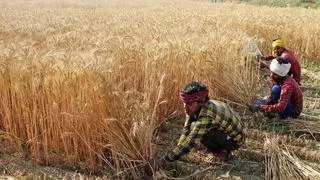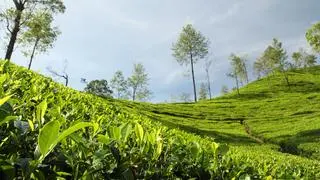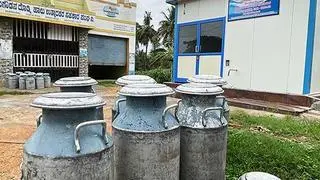Basmati rice exports from India have gained in value and volume following short-supplies from Pakistan, the only other competitor in the global market for the long-grained rice.
Data from the Agricultural and Processed Food Products Export Development Authority (APEDA) show that basmati shipments during April-November of the current fiscal have increased to 2.73 million tonnes (mt), a 13 per cent jump over 2.4 mt in 2021-22.
The value of exports, on the other hand, has increased to $2.87 billion from $.2.06 billion. This is in view of the unit value rising 39 per cent during April-November to $1,051 a tonne from $860 for the entire 2021-22.
More room for a hike
In rupee terms, the rise in value is 48.6 per cent. Though data are available only till November, the picture has changed dramatically since then with Pakistan basmati exports dropping 44 per cent during the July-December period.
Since then, basmati rice prices have increased further. Currently, the fragrant rice from India is quoted at $1,450 a tonne, while the Pakistan variety is offered at $1,350.
The buoyant exports have resulted in basmati farmers fetching 60 per cent higher price this fiscal. According to data from Agmarket, an arm of the Agriculture Ministry, the weighted average price of basmati paddy is ₹4,326 a quintal against ₹2,688 a year ago. “There is room for India to increase basmati prices further in view of the shortage in Pakistan,” said S Chandrasekaran, who has authored the book “Basmati Rice: The Natural History and Geographical Indication” and is a trade analyst.
Wettest August in 61 years
Pakistan has been badly hit by the wettest August in 61 years it witnessed last year. The neighbouring country’s agricultural production, mainly basmati and non-basmati paddy, has been badly affected by floods.
Despite the damage, the US Department of Agriculture (USDA) has not projected any major setback to agricultural production. However, Rice Exporters Association of Pakistan has been quoted by the media that basmati production had declined 40 per cent in the Sindh province due to floods.
On the other hand, India’s basmati production is expected to be higher but details are awaited. Trade sources said Pakistan is going through a turbulent period due to a shortage of US dollars that is preventing it from importing commodities. The drop in basmati exports will further affect Islamabad’s balance of payment problem.
Damage to rail link
Pakistan is currently witnessing skirmishes for food with social media flooded with such incidents. Last year, its wheat crop suffered due to a heatwave and currently, it is having to look at imports to overcome the shortage in the domestic market.
Chandrasekaran said during the August-December period, there would have been at least 50,000 tonnes shortfall in Pakistan basmati supplies in the global market each month. “The historic floods have damaged the Karachi-Lahore rail link. It is another reason for Pakistan’s basmati exports to be affected,” he said. Differences between Pakistan and China over Main Line railway project under China Pakistan Economic Corridor have delayed the work to restore the link.
India, on the other hand, has gained with Iran buying 6.28 lakh tonnes (lt) of basmati rice during the first half of the current fiscal. This is two-thirds of its total basmati imports last fiscal. Saudi Arabia and United Arab Emirates are the next big buyers of Indian basmati, importing 4.45 lt and 1.8 lt respectively in the first half.








Comments
Comments have to be in English, and in full sentences. They cannot be abusive or personal. Please abide by our community guidelines for posting your comments.
We have migrated to a new commenting platform. If you are already a registered user of TheHindu Businessline and logged in, you may continue to engage with our articles. If you do not have an account please register and login to post comments. Users can access their older comments by logging into their accounts on Vuukle.